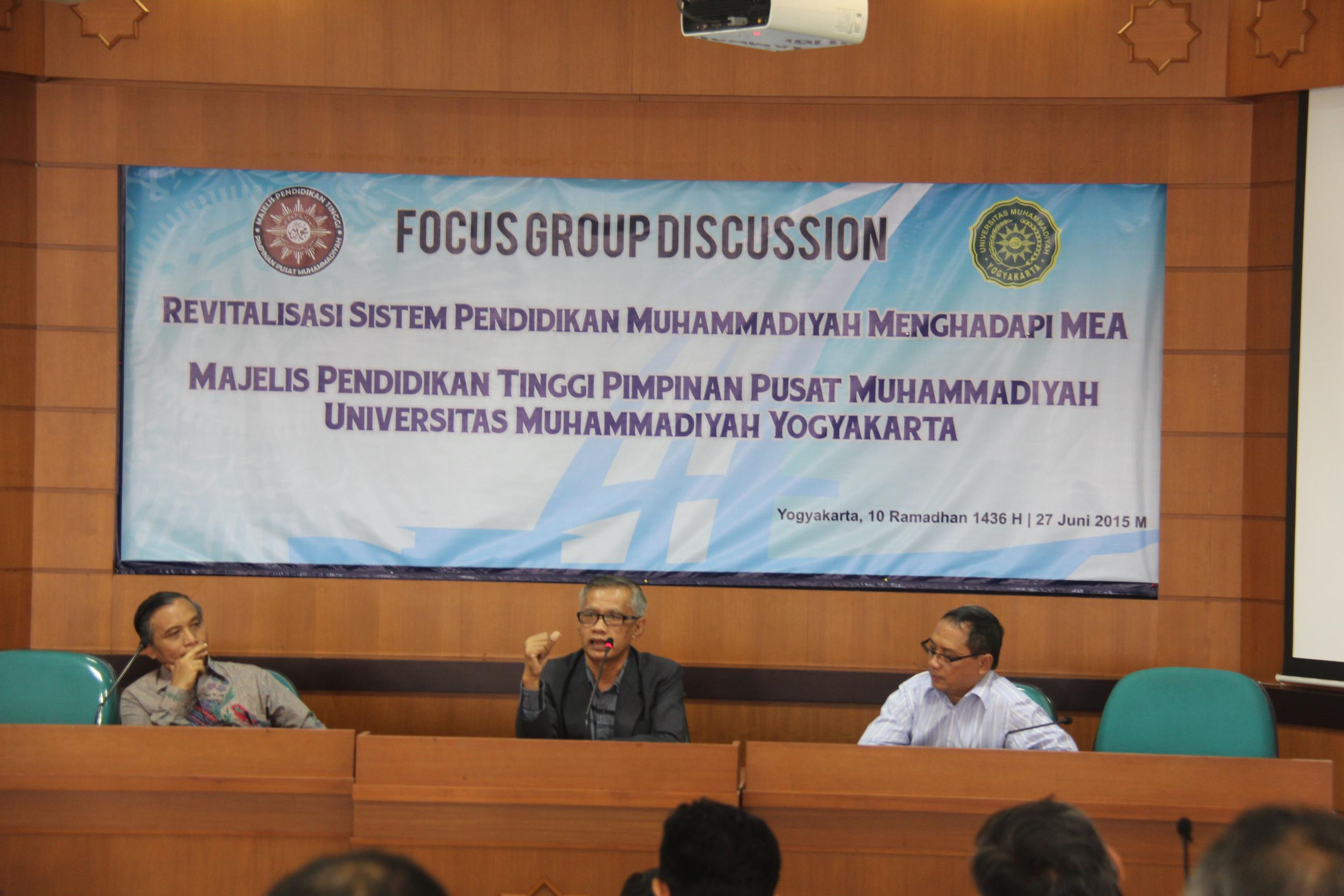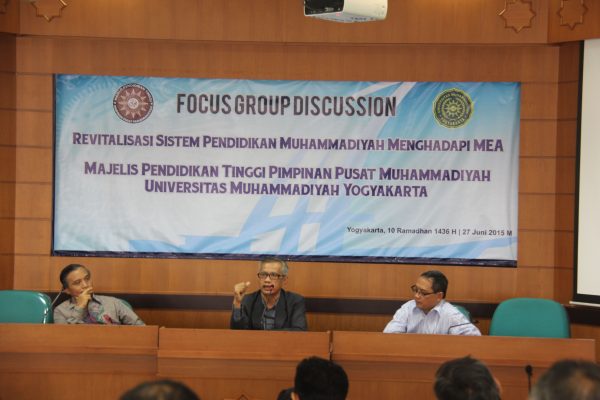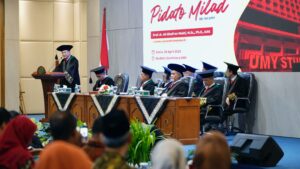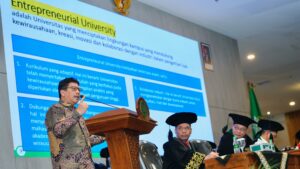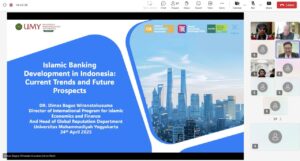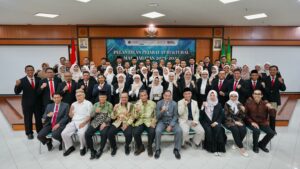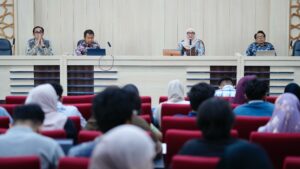ASEAN Economic Community (AEC) in the end of 2015 requires government and citizens to be well prepared for the global competition. It is also necessary to prepare for educational fields sinece educational system can support the learners to be ready for confronting AEC. Muhammadiyah-affiliated educational institutions also focus on preparing it.
Taking lessons of the success and failure of managing education and educational institutions, Muhammadiyah has adequate preparation for encountering the AEC. However, Muhammadiyah needs strategies to foster educational field of Muhammadiyah to prove it.
Head of Pimpinan Pusat Muhammadiyah (Muhammadiyah Center Organization) Dr. Haedar Nashir became a keynote speaker in a Focus Group Discussion ‘Revitalisasi Sistem Pendidikan Muhammadiyah Menghadapi MEA’ (Muhammadiyah Educational System Revitalization to Confront AEC) on Saturday (28/6). He stated that Muhammadiyah has different educational system. It becomes the strength of MUhammadiyah. Moreover, welcoming AEC, Muhammadiyah-affiliation educational institutions are required to see the educational concept initiated by K.H. Ahmad Dahlan as the founder of Muhammadiyah. For one reason, the educational concept will be the basis of Muhammadiyah-affiliated educational institutions to face AEC.
“Quoting of K.H. Ahmad Dahlan, there are four main concepts of Muhammadiyah educational system. They are unity, being critical, using common sense, and using good heart,” mentioned Haedar who also opened the FGD organized by Directorate Higher Education of Muhammadiyah at A.R. Fachruddin A, Floor 5, UMY.
According to Haedar, the four concepts of K.H. Ahmad Dahlan bore the concept of Muhammadiyah in educational field which is now developing across Indonesia. Even though the Islamic education existed from Islamic boarding schools, people now prefer more modern education. In fact, Muhammadiyah educational institutions have declared themselves as modern educational institutions. “For instance, many parents prefer sending their children in modern schools because they are afraid that their children will not be able to continue their study if traditional system is implemented in the school,” he elucidated.
Haedar continued that there are seven essential aspects in order that Muhammadiyah educational institutions can serves the best as development era. Those seven aspects are learning, teaching, educators, associations, management curriculum, and community. “The seven aspects should be collaborated with broad knowledge and common sense,” he inserted.
Furthermore, Prof. Dr. H. Suyata was also the speaker of the discussion. He uttered that confronting AEC in educational aspect tedious learning process at schools should be improves. Various cooperative and collaborative learning should be applied. “Thus, the atmosphere of the schools would be greater because schools having support and involvement of community and parents will encourage the development of students’ learning culture,” he added.
Besides, one of the members of Dikti Prof. Dr. H.A. Munir Mulkhan addressed that Muhammadiyah educational philosophy by Decree of the 46th Muhammadiyah Congress stated that Education of Muhammadiyah is a preparation of environment for a person to grow as a human being aware of the presence of Allah SWT as Robb (God) and mastering sciences, technology, and arts (IPTEKS). “Having spiritual awareness and mastering IPTEKS, a person can fulfill his living independently, and can care of others suffering because of inanity and poverty as the worship to Allah SWT and the member of society, nation, and the just, civilized, and prosperous world,” he stated.
In addition, the FGD was attended by 43 guests from various Muhammadiyah-affiliated higher education, Muhammadiyah junior high schools, Muhammadiyah senior high schools, and Muhammadiyah educational practitioners. It is also invited Muhammadiyah figures to be the speakers, namely Dr. Haedar Nashir, Prof. Dr. H.A. Munir Mulkhan, Prof. Dr. H. Suyata, Prof. Dr. Shodiq A Kuntoro, and Prof. Suyanto, Ph.D as the moderator.
